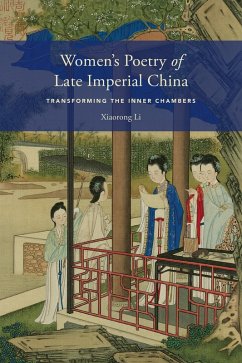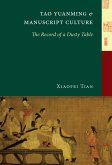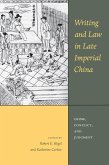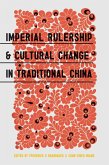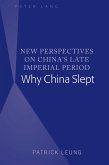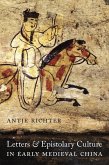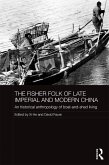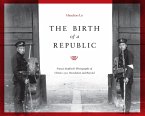This study of poetry by women in late imperial China examines the metamorphosis of the trope of the "inner chambers" (gui), to which women were confined in traditional Chinese households, and which in literature were both a real and an imaginary place. Originally popularized in sixth-century "palace style" poetry, the inner chambers were used by male writers as a setting in which to celebrate female beauty, to lament the loneliness of abandoned women, and by extension, to serve as a political allegory for the exile of loyal and upright male ministers spurned by the imperial court. Female writers of lyric poetry (ci) soon adopted the theme, beginning its transition from male fantasy to multidimensional representation of women and their place in society, and eventually its manifestation in other poetic genres as well.
Emerging from the role of sexual objects within poetry, late imperial women were agents of literary change in their expansion and complication of the boudoir theme. While some take ownership and de-eroticizing its imagery for their own purposes, adding voices of children and older women, and filling the inner chambers with purposeful activity such as conversation, teaching, religious ritual, music, sewing, childcare, and chess-playing, some simply want to escape from their confinement and protest gender restrictions imposed on women. Women's Poetry of Late Imperial China traces this evolution across centuries, providing and analyzing examples of poetic themes, motifs, and imagery associated with the inner chambers, and demonstrating the complication and nuancing of the gui theme by increasingly aware and sophisticated women writers.
Emerging from the role of sexual objects within poetry, late imperial women were agents of literary change in their expansion and complication of the boudoir theme. While some take ownership and de-eroticizing its imagery for their own purposes, adding voices of children and older women, and filling the inner chambers with purposeful activity such as conversation, teaching, religious ritual, music, sewing, childcare, and chess-playing, some simply want to escape from their confinement and protest gender restrictions imposed on women. Women's Poetry of Late Imperial China traces this evolution across centuries, providing and analyzing examples of poetic themes, motifs, and imagery associated with the inner chambers, and demonstrating the complication and nuancing of the gui theme by increasingly aware and sophisticated women writers.
Dieser Download kann aus rechtlichen Gründen nur mit Rechnungsadresse in A, D ausgeliefert werden.

